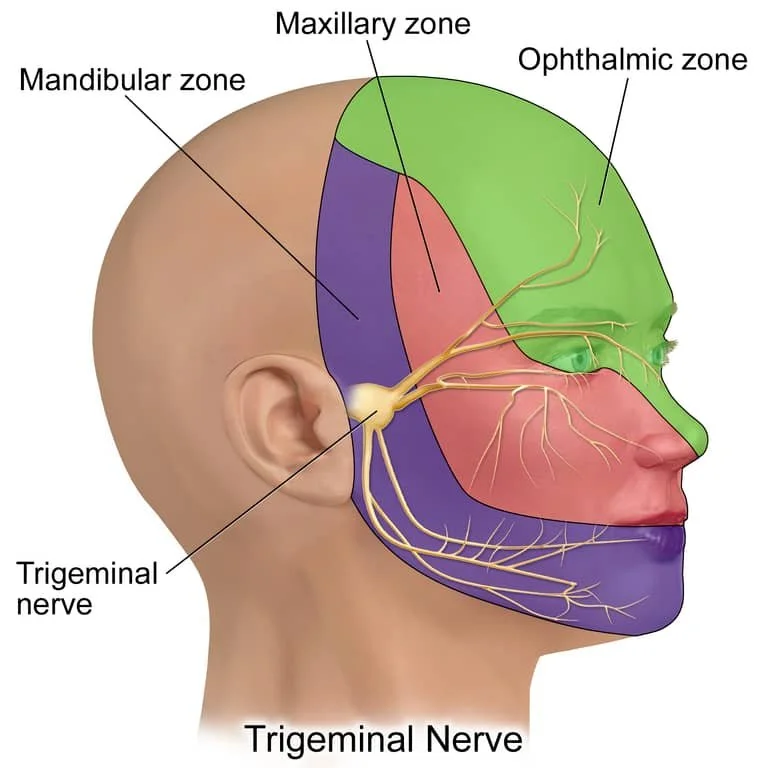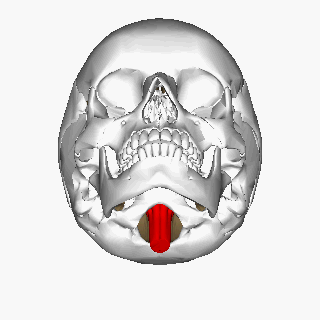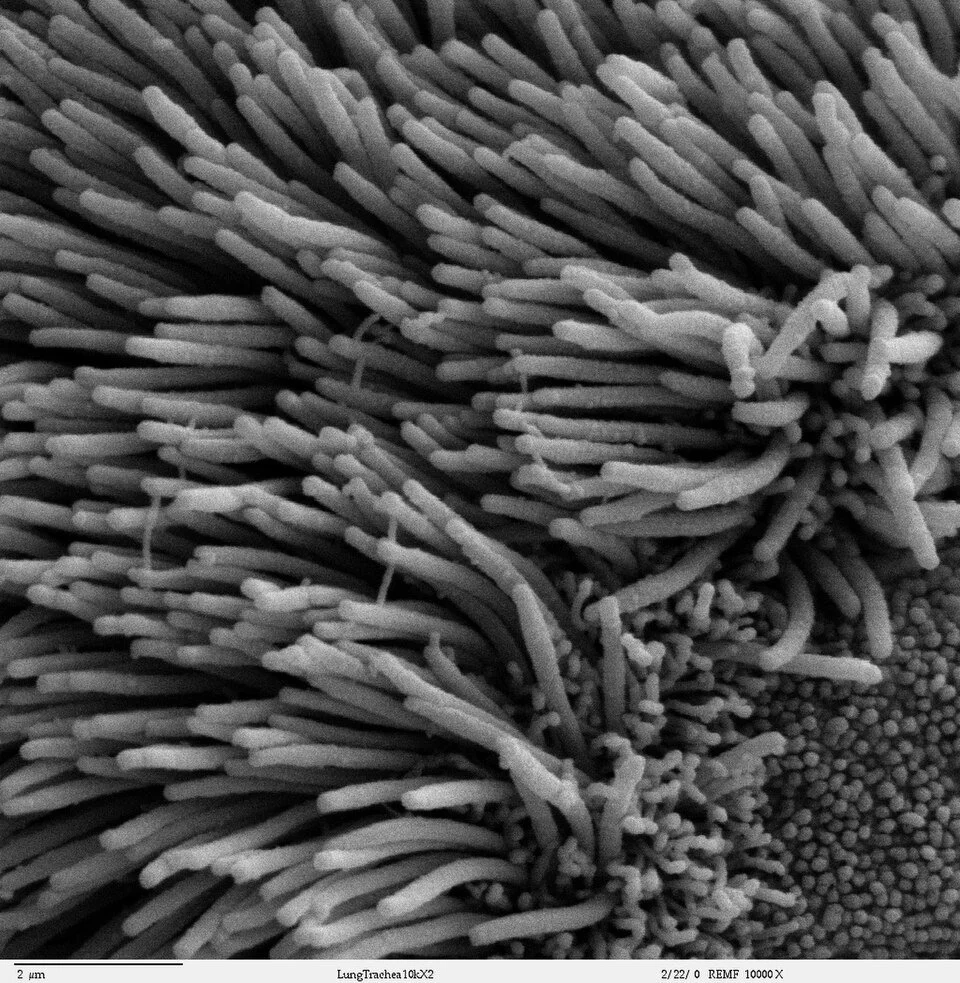What happens in your body when you sneeze?
The short answer
A sneeze begins when irritants in your nose trigger immune cells to release histamine, which stimulates nerve endings that send a signal to the brainstem’s “sneeze center.” In response, you take a deep breath, tense your chest and abdominal muscles with your vocal cords closed, then forcefully expel air through your nose and clear out the irritants.
The long answer
Your body has an arsenal of tools to protect you from foreign invaders. One of the most powerful is the sneeze.
"Spray from One Sneeze" by Freerange Public Domain Archives is part of the public domain.
A sneeze is an involuntary reflex that removes irritants from your nose and throat using a forceful burst of air. If you just sneezed, bless you (and check out the bonus question for why we even say that)!
Here's what goes on inside your body when you sneeze.
Step #1: Irritants trigger immune cells to release chemicals
A sneeze starts when immune cells in your nose and throat detect an irritating foreign substance. Common triggers include pollen, dirt, dust, mold, pepper, smoke, and excessive mucus. For some people, bright light and even stress or strong emotions can trigger sneezing.
The nasal and throat lining contains immune cells called mast cells and eosinophils.
Left: "Mast cell" by Dr. Roshan Nasimudeen is licensed under CC BY-SA 3.0. Right: "Eosinophil 2" by Dr Graham Beards is licensed under CC BY-SA 3.0.
When these cells notice an irritant, they release histamine, a chemical that signals a foreign material has been identified.
Step #2: Histamines irritate nerve endings in the nose
At this point, you may feel a little tickle and snot in your nose. Histamines have begun to irritate nerve endings (causing the tickle feeling) and triggering tiny blood vessels (causing the leaking fluid). Crucially, the nerves are getting the message that a foreign substance has entered the nose.
Step #3: Irritated nerves send a signal to your brainstem
The irritated nerve endings send a message to your brain that something's off. These signals travel along the trigeminal nerve to a region of your brainstem called the "sneeze center."
Left: "Trigeminal Nerve" by BruceBlaus is licensed under CC BY-SA 4.0. Right: "Medulla oblongata and foramen magnum animation small" by Anatomography is licensed under CC BY-SA 2.1 JP.
Once the "sneeze center" gets enough of these "there's a foreign invader in the nose" signals, it triggers the reflex that commands all muscles involved in the sneeze.
Step #4: Sneeze reflex triggers a sudden inhalation and pressure buildup
A sneeze is most effective when a large volume of air is expelled forcefully. First, the reflex causes a sudden, deep breath. Then pressure builds to achieve a high velocity of airflow.
Your glottis (a term to describe your vocal cords and the muscles around them) closes so that air can't escape from your lungs. Your chest and abdominal muscles also tense to increase the pressure, and your eyes squeeze shut.
"OpenStax AnatPhys fig.22.8 - Cartilages of the Larynx - English labels" (modified) by OpenStax is licensed under CC BY 4.0.
❌ Sneeze Myth: If you keep your eyes open during a sneeze, your eyeballs will pop out.
✅ Sneeze Fact: Your eyes can remain open during a sneeze because there's no physical mechanism that could cause them to fly out. Pressure does increase slightly, but you don't need to worry about losing your eyeballs.
Step #5: A forceful exhalation clears irritants from the nose
When pressure peaks, your brain signals the vocal cords to part, allowing all the high-pressure air built up in your lungs to rapidly travel up through your windpipe, throat, and out through your nose (and mouth, to a degree).
Part of the mouth even adjusts automatically so most air exits through your nose. Specifically, the soft palate and uvula in the back of your mouth tilt and your tongue presses against the roof of your mouth.
"Blausen 0653 MouthAnatomy" by BruceBlaus is licensed under CC BY 3.0.
❌ Sneeze Myth: Your heart stops beating during a sneeze.
✅ Sneeze Fact: Pressure changes during a sneeze can slow your heartbeat momentarily, but your heart never stops.
The forceful release of air through your nose lasts about 0.15 seconds and can reach speeds up to 100 mph (160 km/h). If the sneeze doesn’t clear out the irritants, you may need to sneeze a couple more times.
Step #6: Post-sneeze effects
After the sneeze, there's still a lot going on in your body.
Tense muscles relax, and breathing returns to normal. You may still feel sniffly because the histamines that caused blood vessels to leak fluid may still be hanging around.
Your nose is also still working to make sure the nasal lining is in tip top shape. A 2012 study found that your cilia — microscopic, shag-carpet-like structures in your nasal lining that continuously push mucus to the out of your airways — become hyperactive after a sneeze. For a few minutes, your cilia work extra hard to clear out any extra mucus or lingering irritants, giving your nose its best chance of returning to a non-irritated state.
"Bronchiolar epithelium 4 - SEM" by Louisa Howard is part of the public domain.
The researchers theorize that people who suffer from chronic rhinosinusitis (long-lasting nasal inflammation) may have underperforming cilia. As a result, excess mucus and irritants stick around, leading to inflammation symptoms like a runny nose and sneezing.
Finally, you may notice that you feel good after a sneeze. That's thanks to the release of endorphins post-sneeze. These sneeze-triggered endorphins help reduce stress, relieve pain, and generally just make you feel good. Call it an achoo-ahhhhh 😌.
🧠 Bonus brain points
Why do we say "bless you" when someone sneezes?
No one knows for sure, but there are a few theories why English speakers say "bless you" after someone sneezes (other languages also offer similar blessings and wishes of good health):
Theory #1: Protect the sneezer from death
Some believe that the refrain came from Pope Gregory I in 6th century Rome when the bubonic plague was raging in Europe. The idea was that blessing the sneezer with this mini prayer could help them avoid death, since sneezing was a symptom of the plague.
Theory #2: Protect the sneezer from losing their soul
It's also possible that "bless you" was said out of superstition. Some thought that the soul resided in the head, and since air came out through the nose, a sneeze might accidentally be releasing the soul.
Theory #3: Protect the sneezer and those around them from evil spirits
A sneeze has also thought to be a form of evil spirits leaving the body. So a quick "bless you" could help the sneezer (and those around them) from these evil entities.
Curious about how the world works?
Today You Should Know is a free, weekly email newsletter designed to help you learn something new every Friday.
Subscribe today 👇
Check out some other curious questions:
Sources
Adhamy, A. (2023, July 12). What happens in my body when I sneeze?. BBC Science Focus Magazine. https://www.sciencefocus.com/the-human-body/what-happens-in-my-body-when-i-sneeze
Aranda, M. (2016, February 16). Why Do We Sneeze?. YouTube. https://www.youtube.com/watch?v=KdypW7gglp8&ab_channel=SciShow
Ault, A. (2015, December 29). Ask Smithsonian: Why do we sneeze?. Smithsonian.com. https://www.smithsonianmag.com/smithsonian-institution/ask-smithsonian-why-do-we-sneeze-180957634/
Cleveland Clinic. (2024, April 2). Sneezing. Cleveland Clinic. https://my.clevelandclinic.org/health/symptoms/sneezing
Dell’Amore, C. (2015, March 24). Why Do We Sneeze?. National Geographic. https://web.archive.org/web/20160314144404/http://news.nationalgeographic.com/news/2012/08/120814-why-do-we-sneeze-health-science-sinusitis
Georgeson, P. (2000, April 17). Why do we sneeze?. Scientific American. https://www.scientificamerican.com/article/why-do-we-sneeze/
Grush, L. (2015, January 21). Why Do People Sneeze in Twos and Threes?. Popular Science. https://www.popsci.com/why-do-most-people-usually-sneeze-twos-or-threes-and-fours/
Gupta, P. (2025, March 14). Why Does Sneezing Feel So Good?. LifeMD. https://lifemd.com/learn/why-does-sneezing-feel-good
Hadhazy, A. (2010, March 5). Why do people sneeze?. Scienceline. https://scienceline.org/2008/01/ask-hadhazy-sneeze/
The Library of Congress. (2019, November 19). Does your heart stop when you sneeze?. The Library of Congress. https://www.loc.gov/everyday-mysteries/biology-and-human-anatomy/item/does-your-heart-stop-when-you-sneeze/
Winchester Hospital. (n.d.). True or false: Your heart stops beating when you sneeze (and other common beliefs about sneezing). True or False: Your Heart Stops Beating When You Sneeze (and Other Common Beliefs About Sneezing) | Winchester Hospital. https://web.archive.org/web/20210620054914/https://winchesterhospital.org/health-library/article?id=157001
Zhao, K., Cowan, A. T., Lee, R. J., Goldstein, N., Droguett, K., Chen, B., Zheng, C., Villalon, M., Palmer, J. N., Kreindler, J. L., & Cohen, N. A. (2012). Molecular modulation of airway epithelial ciliary response to sneezing. The FASEB Journal, 26(8), 3178–3187. https://doi.org/10.1096/fj.11-202184












It’s like an American accent but with calendars.